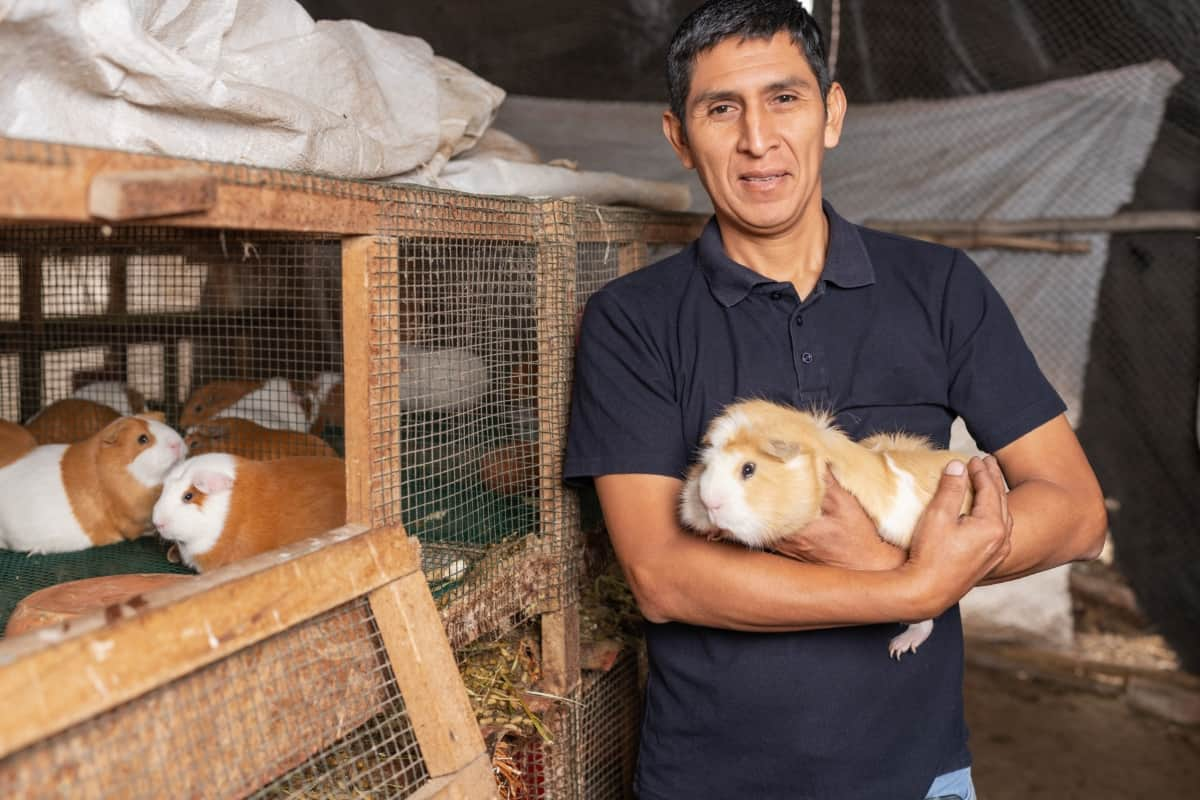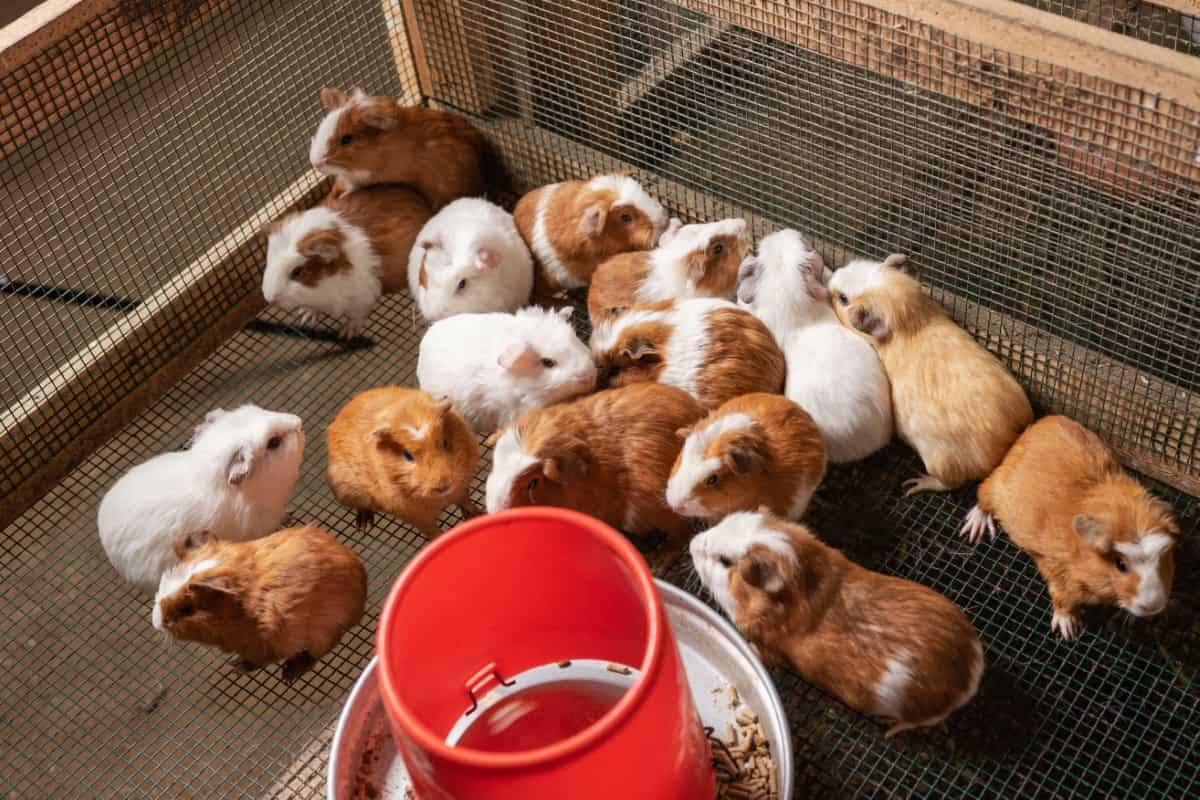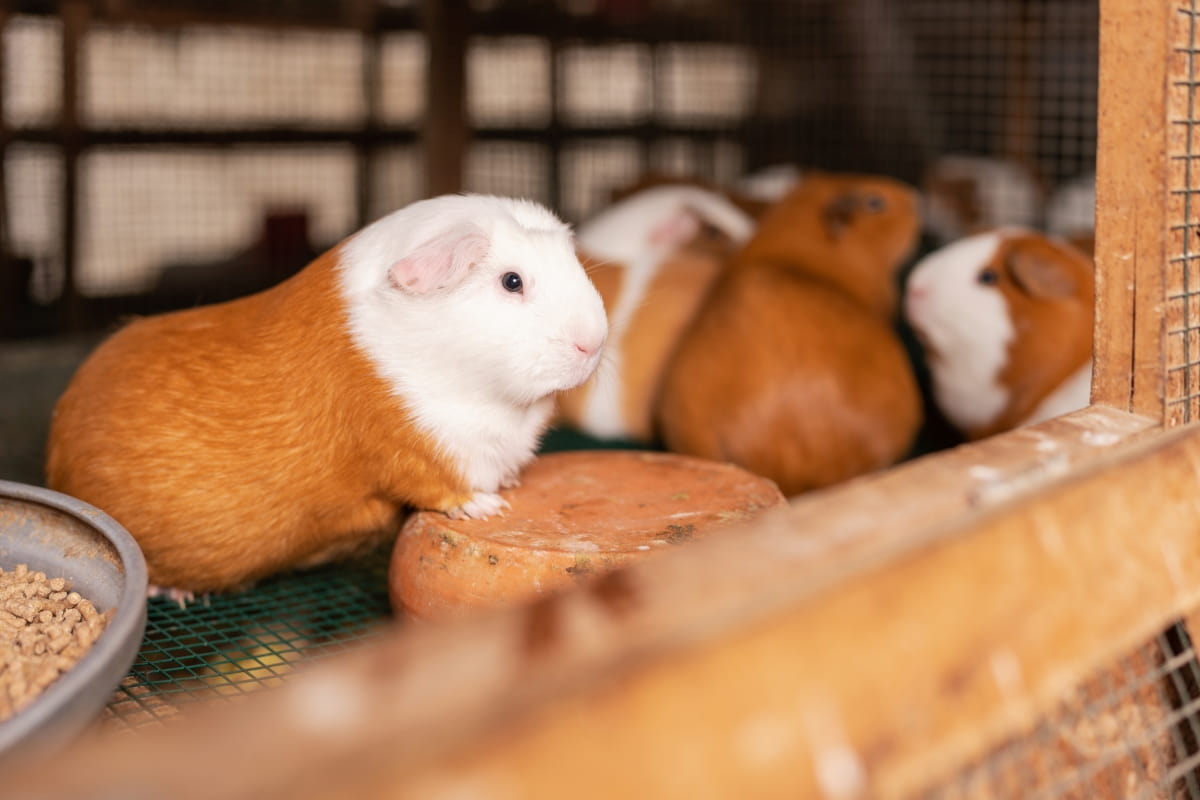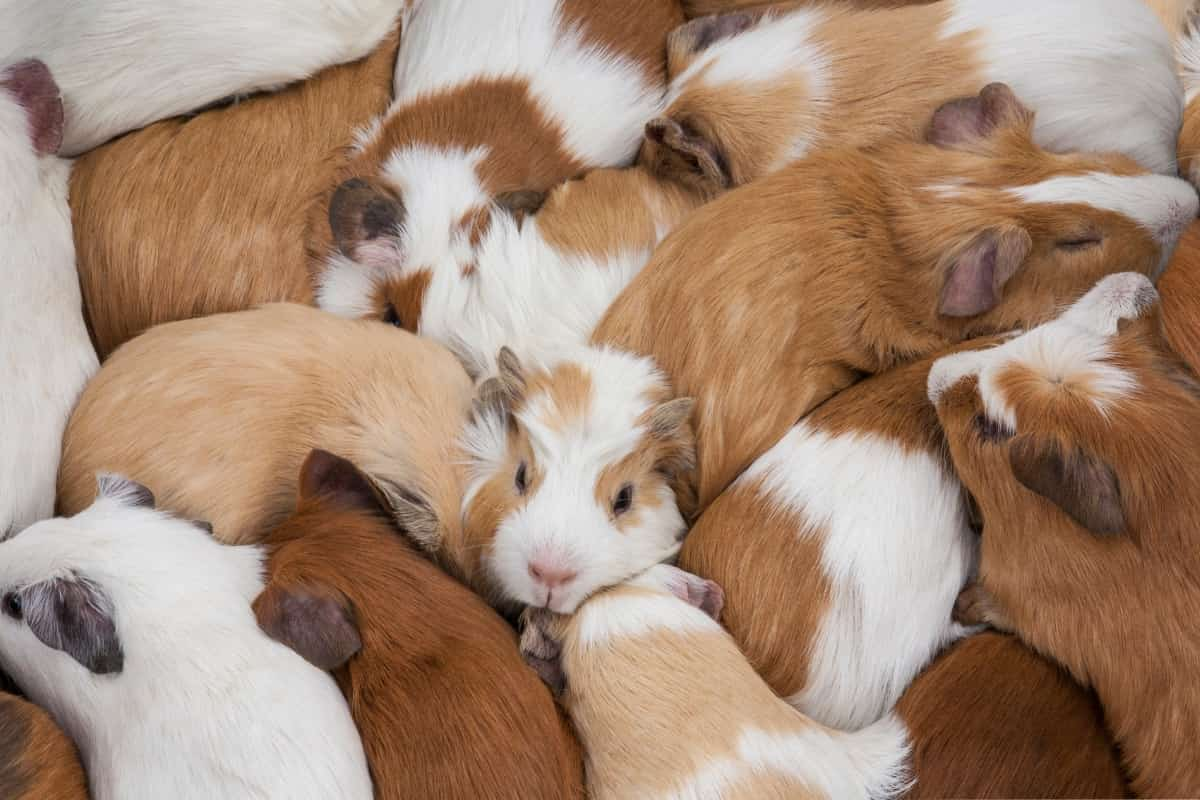Embarking on a guinea pig farming venture presents an exciting and potentially profitable business opportunity. This comprehensive guide is designed to assist aspiring entrepreneurs in developing a robust business plan that covers every critical aspect of guinea pig farming. From understanding the nuances of the industry, conducting market research, and developing a solid business model to the specifics of housing, feeding, healthcare, breeding strategies, and beyond.

Additionally, it delves into crafting effective marketing and sales strategies, managing finances with prudent budgeting, and navigating the regulatory landscape. This article serves as a roadmap for those looking to establish a successful guinea pig farm, providing essential insights and practical steps to turn this unique agricultural niche into a thriving business.
Guinea Pig Farming Business Plan
Understanding the Guinea Pig Farming Industry
To start a guinea pig farming business, it’s crucial to understand the industry. This involves grasping why guinea pig farming is becoming popular, its potential profitability, and how it fits into the broader agricultural sector. Understanding the unique characteristics of guinea pigs, such as their social nature, breeding patterns, and dietary needs, is also essential. By comprehending the market demands and the role guinea pigs play in various cultural and dietary contexts, you can tailor your business plan to meet these specific needs, ensuring a sustainable and profitable venture.
Market Research and Analysis for Guinea Pig Farming
This involves identifying your target market, understanding customer preferences, and analyzing competitors. Determine who your potential customers are—be they pet owners, breeders, or even culinary markets—and what they look for in guinea pig products. Additionally, evaluate the local and regional competition to understand their strengths and weaknesses. This analysis helps in creating a market strategy that positions your guinea pig farm to meet unique market needs effectively.
Developing a Business Model for Guinea Pig Farming
The business model for guinea pig farming should outline how your farm will operate and generate revenue. This includes deciding on the scale of the farm, the types of guinea pigs to breed, and the business structure. Consider whether you will focus on breeding guinea pigs as pets, for meat production, or other purposes. It’s also important to plan for diversification, such as offering guinea pig-related products or services, to create additional revenue streams and reduce risk.
Guinea Pig Housing and Infrastructure Planning
Proper housing and infrastructure are crucial for the well-being of guinea pigs and the efficiency of your farm. Plan for spacious, secure, and clean housing to keep your guinea pigs healthy and happy. This includes designing enclosures that allow for social interaction among guinea pigs and protect them from environmental stressors. Also, consider the layout of your farm for ease of access, cleaning, and overall management.
In case you missed it: Pig Breeding Cost and Profit: Production Economics and Project Report

Feeding and Nutrition Management for Guinea Pigs
Effective feeding and nutrition management are vital for the health and growth of guinea pigs. Develop a feeding plan that meets their nutritional needs, which includes a diet rich in hay, fresh vegetables, and specially formulated pellets. Maintain a steady provision of pure water and comprehend the distinct nutritional needs during various life stages. Proper nutrition not only ensures the well-being of the guinea pigs but also enhances their growth and reproduction rates.
Healthcare and Disease Management in Guinea Pig Farming
Managing the health of your guinea pigs is paramount. This includes regular health checks, vaccinations, and prompt treatment of illnesses. Understand common health issues in guinea pigs, such as respiratory infections or digestive problems, and how to prevent or treat them. Establish relationships with veterinarians who specialize in small animals and keep up-to-date with the latest healthcare practices in guinea pig farming.
Breeding and Reproduction Strategies for Guinea Pigs
Finally, developing effective breeding and reproduction strategies is key to sustaining your guinea pig farm. This involves understanding the breeding cycle of guinea pigs, selecting healthy breeding pairs, and managing the reproduction process efficiently. Monitor the health and growth of offspring and plan for the genetic diversity of your breeding stock to ensure healthy and robust guinea pig populations.
In case you missed it: Sustainable Waste Management in Pig Farms: Turning Challenges into Opportunities

Marketing and Sales Strategies for Guinea Pig Products
Developing effective marketing and sales strategies is key to ensuring the success of your guinea pig products. This involves finding the best ways to connect with your desired customers, which can be through the internet, nearby pet shops, or selling directly at farmers’ markets.
Create an engaging brand narrative that speaks to your target audience, highlighting the special qualities of your guinea pigs, like their breeding, health, and care standards. Additionally, think about using social media to create a community centered around your brand. Share insights into your farm’s activities and educate potential buyers about the advantages of guinea pig products.
Financial Planning and Budgeting for a Guinea Pig Farm
Financial planning and budgeting are critical to managing your resources effectively and ensuring the profitability of your guinea pig farm. This involves creating a detailed budget that accounts for initial setup costs, ongoing operational expenses, and projected revenue. Consider the costs of housing, feed, healthcare, labor, and marketing, and balance these against your expected income from selling guinea pigs and related products. It’s also important to plan for contingencies and unexpected expenses to ensure financial stability and sustainability.
Regulatory Compliance and Legal Considerations in Guinea Pig Farming
Understanding and adhering to regulatory compliance and legal considerations is essential to operate your guinea pig farm lawfully. This involves acquiring the required permissions and official approvals for your animal farming activities, and making sure that your operations adhere to the animal welfare, biosecurity, and environmental regulations set by local, state, and federal authorities.
Stay informed about the laws and regulations specific to guinea pig farming and work with legal experts if necessary to ensure full compliance. Additionally, consider the legal aspects of running a business, such as contracts, insurance, and liability, to protect your business and your customers.
In case you missed it: The Pig Fattening Process: Methods, Feed Formula, and Cost

Conclusion
Establishing a guinea pig farm requires thoughtful planning, strategic execution, and ongoing management across various operational facets. A well-structured business plan that includes detailed market analysis, business modeling, housing and nutrition plans, health and breeding strategies, effective marketing, sound financial management, and compliance with legal standards is essential for success.
- Feed Your Flock for Less: Top 10 Tips to Save on Chicken Feed
- Ultimate Guide to Ossabaw Island Hog: Breeding, Raising, Diet, and Care
- Hatching Answers: The Top 10 Reasons Your Chickens Aren’t Laying Eggs
- Eggs and Economics: Breaking Down the Cost of Raising Backyard Chickens
- Defend Your Greens: Proven Methods to Keep Iguanas Out of Your Garden
- Ultimate Guide to Cinnamon Queen Chicken: A Comprehensive Guide for Beginners
- Ultimate Guide to California Tan Chicken: Breeding, Raising, Diet, Egg-Production and Care
- Ultimate Guide to Marsh Daisy Chicken: Breeding, Raising, Diet, and Care
- 10 Types of Chicken Farming Businesses You Can Start for Profits